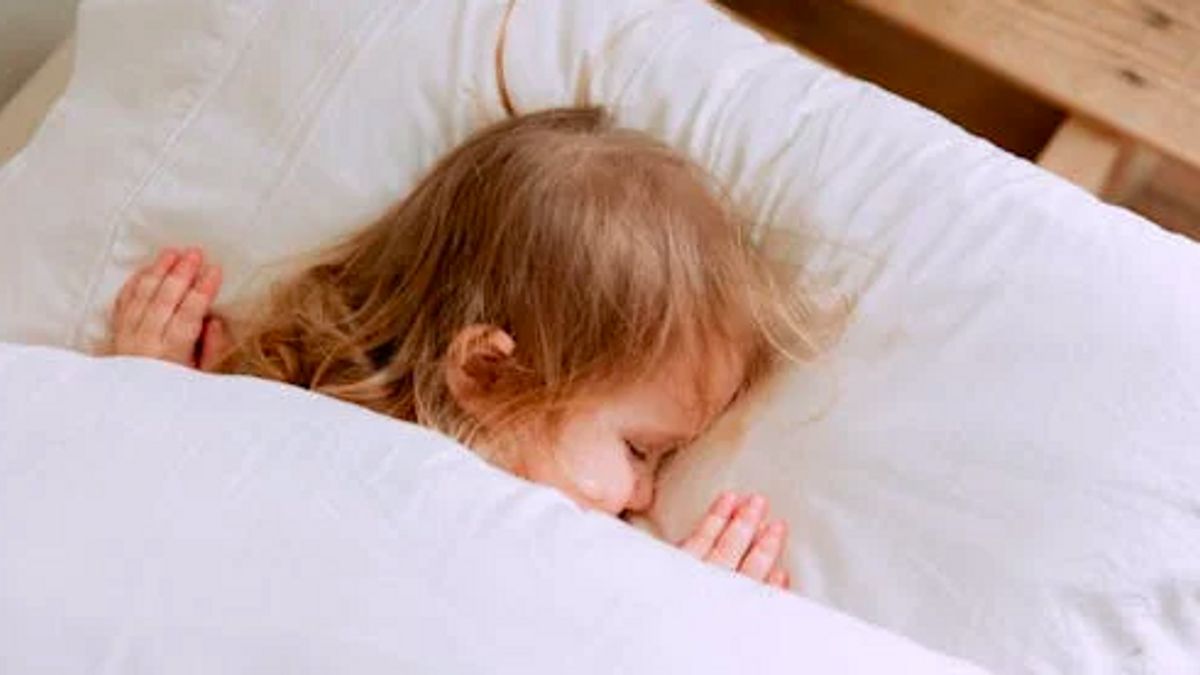JAKARTA - Sleep patterns in children play an important role in their daily mood and behavior. Many studies show irregular sleep patterns or lack of sleep can make children more fussy, tend to be sensitive, and difficult to regulate.
One of them can be seen from the facts of the latest study published in the Journal of Developmental and Behavioral Pediatrics. The study revealed that regular sleep patterns have a better impact on children's behavior and attitudes than the duration and quality of sleep.
Children with a consistent sleep schedule have better control over their emotions and behavior when working with others or when they are stressed.
"Children who have consistent sleep time can generally regulate their behavior and emotions. On the other hand, children who have irregular sleep and sleep time show more impulsiveness and lack control," said Adwoa Dadzie as quoted by Antara.
The researchers tracked sleep and behavioral data from 143 six-year-old children who participated in the Penn State Intervention Nurses Start Infants Growing on Healthy Trajectories (INSIGHT) study.
Using monitors mounted on their wrists, they note various aspects of children's sleep, including bedtime, waking times, midnight, efficiency of sleep, and total sleep duration.
The researchers also assessed the response of each child to frustration through the task. In this case the child's choice of toys is put in a locked transparent box and the child is given a set of keys, but none of them can be used to open the box.
The researchers observed and noted child behavioral responses, including self-regulated behaviors such as talking to yourself, trying to try each key methodically, as well as signs of frustration or lack of self-regulation.
After four minutes, the researchers returned with a key that could be used to open the box and give the child access to the toy.
SEE ALSO:
In another task, children are asked to work on handicraft projects with their parents so that researchers can observe their cooperative behavior.
Positive interactions such as sharing and cooperating are noted as a sign of pro-social behavior, while actions such as damaging handicraft equipment or disobeying parents are considered an anti-social trend.
The researchers said the study showed that the more varied their children's sleep time was every night, the worse they would be by regulating their behavior and emotions.
Children who sleep less vary, for example, just 20 minutes, showing better self-regulation than those who sleep two hours a week.
The researchers concluded the findings support the importance of consistency in sleep and how this might play a greater role in children's behavior and emotions compared to the duration and quality of sleep.
The English, Chinese, Japanese, Arabic, and French versions are automatically generated by the AI. So there may still be inaccuracies in translating, please always see Indonesian as our main language. (system supported by DigitalSiber.id)


















